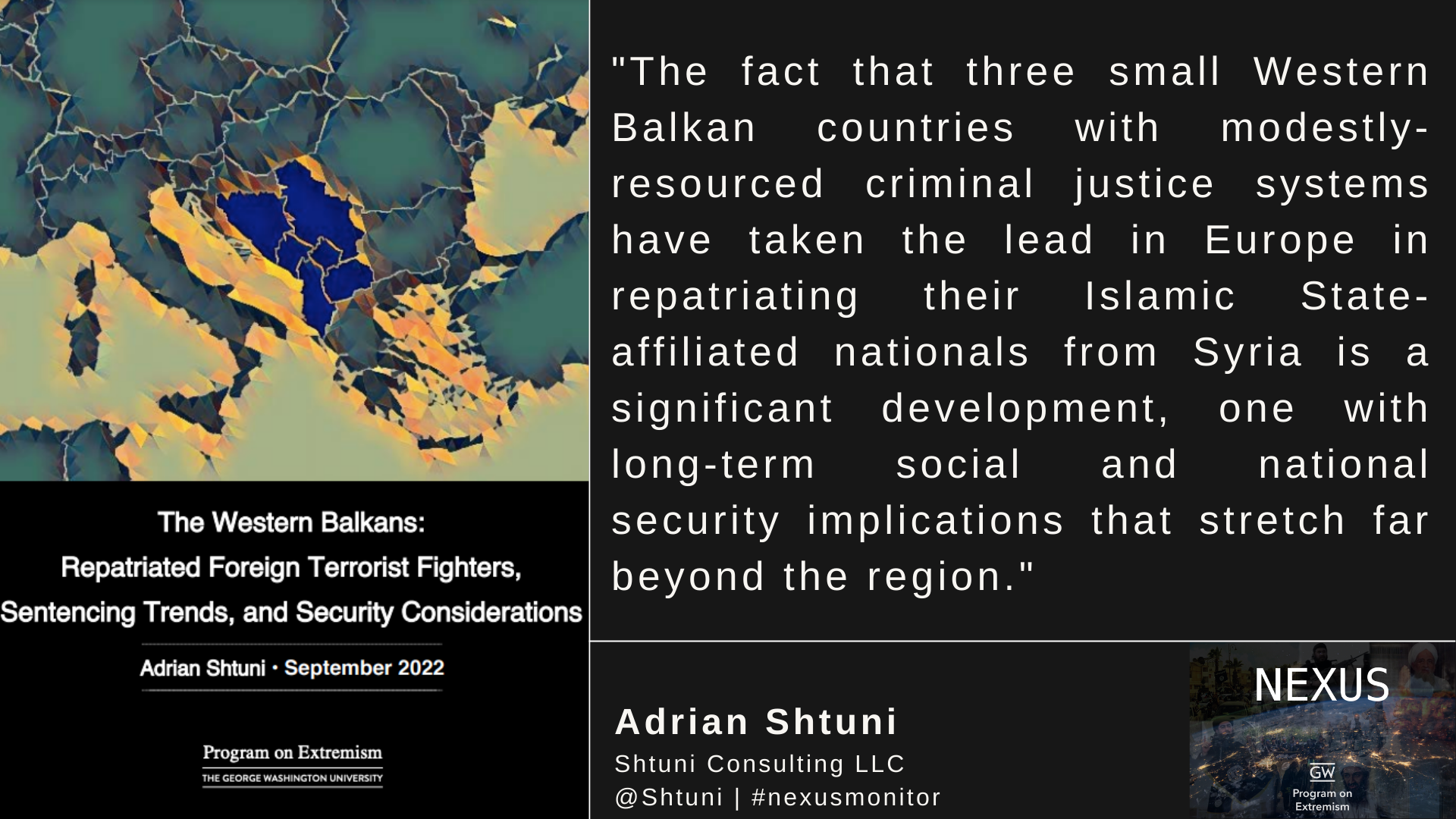Summary
The Western Balkan states of Bosnia and Herzegovina, Kosovo, and North Macedonia are the only European countries to have voluntarily and publicly repatriated male Islamic State foreign terrorist fighters (FTFs) previously detained by Kurdish-led forces in Syria. Their proactive repatriation approach deserves both praise and greater attention. Controlled removal of foreign nationals from overcrowded prisons reduces the risk of their contribution to a potential Islamic State reemergence in Syria and Iraq, and allows for a more effective management of security risks. It also provides a valuable opportunity to study the attitudes and behaviors of repatriated FTFs in order to tailor more effective policy responses to the dynamic needs and security risks associated with them. This report provides an overview of controlled repatriation operations of male FTFs, legal responses, prosecution and sentencing trends in the Western Balkans. It also discusses advantages of repatriation, challenges for effective management within the correctional system, and considerations for more effective policy responses tailored to the dynamic needs and security risks associated with repatriated FTFs both within the correctional system and following their release from prison in the next few years. It finds:
❖ 31 repatriated male individuals (with one exception) have either been prosecuted and sentenced or are currently facing criminal proceedings and investigations on terrorism charges.
❖ Court documents in various cases confirm that in joining the Islamic State these FTFs acted with premeditation and as part of a group of likeminded individuals, or in coordination with jihadist networks operating between the Western Balkans and Syria, sometimes linked to elements of the Western Balkans diaspora in Europe.
❖ On average, repatriated Islamic State FTFs have received lengthier prison sentences relative to other jihadist terrorism convicts in their respective countries.
❖ The convictions handed down by the Bosnian and Kosovar criminal justice systems continue to border on the minimum prison term provided for in the Criminal Codes of their respective countries. They are also significantly lower than the average prison term in the European Union for similar offenses




